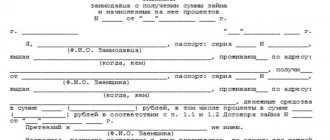General information about property management
Key features are due to the fact that real estate can be managed both for personal and social needs, as well as for investment and business activities.
At its essence, management is a complex of interrelated actions and operations in the field of operation of various types of buildings and structures, such as analysis of compliance with standards of the conditions for the delivery of premises, aimed at increasing the efficiency and reliability of their use in the interests of the owner or investor.
The property management system contains the following components:
- real estate management operations aimed at meeting the needs of the owner;
- a complex of regulation and control at the legislative level of the activities of all real estate entities, which is carried out by special government agencies;
- correct preparation and registration of the necessary package of documents for real estate.
Models
Next, models of management activities are considered.
For reward
The concept of trust management of property was legislatively introduced in the Russian Federation and described in Chapter 53 of the Civil Code of the Russian Federation as an independent legal form of managing someone else’s property.
Trust management of an object is carried out by the manager without transferring ownership of the property to him, but may provide for a remunerative nature of the relationship.
Operating model
Operational regulation is aimed at carrying out actions with an object or portfolio of real estate that will ultimately lead to one of three possible results:
- financial balance;
- prospect of bankruptcy or crisis;
- obtaining excess profits, at which profitability significantly exceeds normal, and profitability - the industry average.
Strategic
Strategic regulation includes the development of a long-term strategic plan . Strategic planning is aimed at drawing up a plan of action to obtain a positive result from the use of real estate in the future.
Basic principles of property management
Principles as a legal category determine the key features and direction of activity. They largely depend on the political and economic system, as well as many other factors.
Among the main principles of regulation of management activities are the following:
- Legality – full compliance of all documentation and the actual activities of the subjects with the established norms of legislation and the rule of law.
- Publicity and openness – availability of information about all participants in real estate management relations in the public domain.
- Competitiveness – the development of competition in the market, which contributes to the rapid development of the direction.
- Distribution of procedures and powers - adequate assignment of responsibilities for authorized bodies and the creation of special procedures for regulating their activities.
- Rationality - regulation by management in accordance with the needs of participants with the most beneficial distribution of functions.
- Compliance with rules and regulations - tolerance of competitors in the market, acceptable behavior and legal activities.
Their compliance is an integral part of the successful development of any direction, which is controlled by specialized, authorized government agencies.
Maintenance of commercial real estate
Maintenance of each facility is carried out by certified employees of Re-group LLC around the clock, including weekends and holidays.
Maintenance of utility networks and systems of a property includes:
- technical audit
- scheduled preventive inspections and elimination of detected deficiencies
- operation/repair of heating, ventilation, air conditioning, auto control systems, electrical systems (power and lighting), low-current systems, water supply and sewerage, individual parts of the building
- Troubleshooting networks and systems
- maintaining technical and operational documentation
- dispatch services 24 hours
- 24-hour response in case of emergency situations: malfunctions, accidents, etc.
- interaction with emergency services
- acquisition of necessary consumables, tools, equipment
- current repair of equipment and structural elements of the facility
- major repairs, reconstruction, modernization of equipment and structural elements of the facility
- constant monitoring of engineering systems and equipment, emergency prevention
- planning and accounting of utility consumption: electricity, cold water, hot water, heating, sewerage
- drawing up and providing a report to the owner of the property and tenants on the actual consumption of utilities
- during the post-warranty period - providing the Customer with reports (once a quarter) on the condition of engineering systems and networks in general.
In addition, the maintenance of commercial real estate includes the appointment of those responsible for electrical, thermal and elevator facilities, as well as fire safety. A specialized company is hired to service elevator equipment and escalators.
Objects and subjects of real estate management
In a broad sense, objects mean property, as well as its systems (municipal housing funds, partnerships, etc.), in relation to which management relations arise.
These include, in particular:
- buildings and structures for various purposes - residential, warehouse, office, industrial;
- property assets of enterprises, regardless of their form of ownership;
- systems of the above-mentioned objects - funds: all types and components of the housing stock, forest and land funds, etc.
Regarding subjects, these are considered to be all types of participants in legal relations in the field of real estate - individuals. and legal faces:
- owners, users and owners of property;
- investors;
- tenants;
- real estate agents;
- institutions with appropriate powers;
- government agencies;
Attention! The basics of real estate management are specified in the relevant chapter of the Civil Code of the Russian Federation (hereinafter referred to as the Civil Code of the Russian Federation), with a detailed description in the comments of articles and specialized legal acts of national legislation.
A number of basic types of activities of authorized entities to directly impact real estate have been scientifically defined and compiled.
Among them are:
- Regulation at the state level:
- direct impact - by issuing legislative acts, instructions and rules that directly regulate relations in this area, registering and issuing relevant licenses, monitoring compliance with standards;
- indirect influence - the so-called economic methods of influence: implementation of specialized programs, imposition of taxes on real estate, comprehensive reform and improvement of the region.
- Impact at the public level: objective public response, taking into account professional actors, and the practical consequences of such response.
- Management of individual objects: operating ones, used by the owner for a certain type of business activity in his own interests, and investment ones - real estate that is required to maximize profits.
- Impact on real estate systems: residential (RZHA) and non-residential (RA KUGI)
Property Manager
Salary Reviews | February 1, 2010Author: Research Center of the Superjob.ru portal
The research center of the recruiting portal SuperJob.ru (https://www.superjob.ru/) in February 2010 studied the offers of employers and the expectations of applicants for the position of “Real Estate Manager” in 9 cities of Russia.
The functional responsibilities of such specialists include all aspects of managing the use of real estate. Their competence includes the formation of a strategy for the operation of the property, development and control of the implementation of the corresponding budget. Property managers are responsible for developing and implementing operating standards, organizing the work of technical services, carrying out repairs and reconstructions, and ensuring the uninterrupted functioning of the building's engineering and technical systems. In addition, property managers interact with tenants, owners, contractors and regulatory authorities, manage staff, organize employee training and monitor compliance with health and safety standards at the site.
The average salary of property managers in Moscow is 75,000 rubles, in St. Petersburg – 65,000 rubles. In Omsk and Samara, property managers earn about 33,000 and 35,000 rubles. respectively. Data for other cities participating in the study are presented below (see tables).
Applicants applying for the position of property manager for the first time must have a higher education and work experience in the field of operation of buildings and structures of at least 3 years. The main requirements from employers for novice specialists are knowledge of design and estimate documentation, building engineering systems, norms and rules for the operation of residential / non-residential stock, regulations and rules for performing work. Property managers who meet the above characteristics can expect a salary in the capital from 40,000 to 60,000 rubles, in the city on the Neva - from 35,000 to 50,000 rubles, in Omsk - from 20,000 to 26,000 rubles, in Samara - from 20,000 to 27,000 rub.
Claims for higher wages are justified if candidates have more than 2 years of work experience as a property manager, as well as experience interacting with tenants. Applicants must be proficient in modern real estate management methods and demonstrate good organizational and communication skills. Property owners with foreign partners give preference to specialists who are fluent in English. The salary of property managers of similar qualifications in Moscow reaches 90,000 rubles, in the northern capital – 78,000 rubles, in Omsk – 38,000 rubles, in Samara – 40,000 rubles.
Entry into the next salary range is open to specialists with at least 3 years of experience in managing class A or B real estate. Their maximum income in Moscow today is 150,000 rubles, in St. Petersburg - 140,000 rubles, in Omsk and Samara - 75,000 rubles.
According to labor market research, the responsibility for managing real estate is a purely male affair. 96% of specialists are representatives of the stronger sex. Most of them are between 40 and 50 years old (46%). 97% of property managers have higher education. The specific nature of the work involves a large number of travels, so 90% of specialists have category “B” licenses.
Regions of study:
gg.
Moscow, St. Petersburg, Yekaterinburg, Nizhny Novgorod, Novosibirsk, Rostov-on-Don, Omsk, Samara, Ufa. Time of research:
February 2010.
Unit of measurement:
Russian ruble.
Object of study:
employer proposals and expectations of applicants for the position of “Real Estate Manager”.
Typical functionality:
Management of operation of a real estate object: - formation of a strategy for the operation of a real estate object; — development and implementation of standards for the management and operation of real estate; — managing relationships with tenants, owners, contractors, regulatory authorities; — organizing the work of technical services and ensuring the uninterrupted operation of the building’s engineering and technical systems; — building infrastructure management; — maintaining operational documentation, drawing up technical specifications; — organization of repair/reconstruction of the property; — management of personnel, organization of their training; — monitoring compliance with labor protection and safety standards at the facility; — development and control of budget execution for the operation of the property.
Position requirements:
type of employment - full time.
The level of remuneration for a specialist is determined by the welfare of the company, the list of job responsibilities, work experience in the specialty, and the level of development of professional skills.
Analysis of information on specialist remuneration levels:
(excluding bonuses, additional benefits and compensation)
| Max. | Fashion | Median | Lower quartile | Upper quartile | Average | ||
| Moscow | 40 000 | 150 000 | 70 000 | 75 000 | 60 000 | 90 000 | 73 700 |
| Saint Petersburg | 35 000 | 140 000 | 60 000 | 65 000 | 50 000 | 78 000 | 60 400 |
| Ekaterinburg | 27 000 | 100 000 | 50 000 | 48 000 | 38 000 | 55 000 | 47 900 |
| Nizhny Novgorod | 22 000 | 85 000 | 40 000 | 40 000 | 30 000 | 44 000 | 39 100 |
| Novosibirsk | 25 000 | 100 000 | 45 000 | 43 000 | 35 000 | 50 000 | 44 200 |
| Rostov-on-Don | 20 000 | 80 000 | 40 000 | 37 000 | 30 000 | 42 000 | 37 100 |
| Omsk | 20 000 | 75 000 | 35 000 | 33 000 | 26 000 | 38 000 | 33 200 |
| Samara | 20 000 | 75 000 | 35 000 | 35 000 | 27 000 | 40 000 | 36 700 |
| Ufa | 20 000 | 80 000 | 35 000 | 36 000 | 28 000 | 40 000 | 36 900 |
Explanations for the table »
The study of the data array on salaries in the studied regions allows us to identify several main salary ranges, each of which is characterized by a certain typical set of requirements and wishes for the candidate. Each subsequent salary range includes the requirements formulated for the previous ones.
| Region | Band I | Range II | Range III |
| Moscow | up to 60,000 | 60 000 — 90 000 | over 90,000 |
| Saint Petersburg | up to 50,000 | 50 000 — 78 000 | over 78,000 |
| Ekaterinburg | up to 38,000 | 38 000 — 55 000 | over 55,000 |
| Nizhny Novgorod | up to 30,000 | 30 000 — 44 000 | over 44,000 |
| Novosibirsk | up to 35,000 | 35 000 — 50 000 | over 50,000 |
| Rostov-on-Don | up to 30,000 | 30 000 — 42 000 | over 42,000 |
| Omsk | up to 26,000 | 26 000 — 38 000 | over 38,000 |
| Samara | up to 27,000 | 27 000 — 40 000 | over 40,000 |
| Ufa | up to 28,000 | 28 000 — 40 000 | over 40,000 |
Explanations for the table »
| № | Salary range | Requirements and wishes for professional skills |
| 1 | I | - higher education; - PC user; — knowledge of building engineering systems; — knowledge of the rules and regulations for the operation of residential/non-residential buildings; — knowledge of the rules of operation and implementation and regulations of work of the housing stock; — knowledge of design and estimate documentation; — experience in the field of real estate management for at least 3 years; |
| 2 | II | — possession of modern methods of real estate management; — good organizational and communication skills; — experience working with tenants; — experience as a property manager for at least 2 years; Possible wish: - knowledge of English at a conversational or fluent level |
| 3 | III | — experience in managing real estate class A, B — experience in managing real estate objects for at least 3 years. |
Statistical data:
- The age range of property managers most in demand on the labor market is 30-55 years; managers under the age of 30 make up 5% of the total number of managers; aged 30 to 40 years – 24%, aged 40 to 50 years – 46%, aged over 50 years – 25%;
- 96% of property managers are men;
- 55% of property managers speak English at a basic level and at a level sufficient to read specialized literature; at conversational and free levels - 11%;
- 97% of property managers have higher education;
- 90% of property managers have a category B driver's license.
Visit the professional community of the SuperJob “Real Estate” portal
Order a salary review
View property manager resumes on SuperJob
View property manager vacancies on SuperJob
Blog embed code
Didn't find the review you needed on the site?
“Salary Meter” will help you keep abreast of the situation on the labor market! Other articles
Accountant
The best September vacancies in Moscow and St. Petersburg
PHP Programmer
The best vacancies of August in Samara, Volgograd, Yekaterinburg, Chelyabinsk, Perm and Ufa
The best vacancies of August in Nizhny Novgorod, Kazan, Rostov-on-Don, Voronezh and Krasnodar
The best vacancies of August in Novosibirsk, Omsk, Krasnoyarsk, Khabarovsk and Vladivostok
Supermarket sales assistant
Best August vacancies in Moscow and St. Petersburg
HR Manager
Best vacancies of July
Subscription to the results of new research Price list for analytical research
© Reprinting in any media, including on the Internet, is possible provided there is a direct active link to the Superjob.ru portal.
Features of some types of control
Let's consider the two most common management options in investment practice.
Commercial real estate and management features
Commercial real estate management is a continuous, systematized mechanism for interaction between subjects of legal relations,
Attention! The main goal of management is the maximum development of legal, material and technical indicators of the property, their rational and effective use, aimed at increasing value in the future.
After analyzing a number of factors and legislative provisions, we can divide this type of management into external and internal. External management refers to control over the activities of subjects at the highest state level, the creation of an appropriate regulatory framework for its productive regulation. Internal, in turn, represents the direct activity of a specific subject, the preparation of regulatory documents of a local nature.
Trust management
Trust management of real estate is a relationship that arises between the parties - the founder and the trustee - in connection with the transfer of property for a certain period and the implementation of its management in the interests of the owner (founder). As already mentioned, relations are formalized on the basis of an agreement between the two parties, which can be characterized as consensual, i.e. is considered concluded from the moment agreement is reached between the participants.
As a result of the conclusion of a trust management agreement, only the right to manage property in the interests of the founder, but not the right of ownership, is transferred to the trustee. Legislation and contract terms may introduce amendments or restrictions on management relationships. Features of regulation of the presented relations are specified in the Civil Code of the Russian Federation.
To summarize, we can say that real estate management is a labor-intensive and rather complex mechanism for regulating the activities of a number of entities in the real estate sector, requiring tireless monitoring by authorized government agencies over compliance with the law and rules.
Features of trust property management
Trust management involves the transfer of existing real estate to a special person, who subsequently, for a certain fee, performs all the required actions for leasing the property. As a rule, leasing itself takes a lot of effort and time from the owner. After all, it is necessary to find possible tenants, formalize the transaction correctly, carefully monitor the timeliness of incoming payments, and quickly and effectively solve recurring problems. When there is only one room, you can handle this yourself. But if there is a large number of real estate, then considerable difficulties may arise.
It is for such purposes that the possibility of trust management exists. For many owners, it is noticeably more profitable to shift the responsibility for monitoring the premises being rented to the shoulders of a specially trained person. And although the overall profit due to the payment transferred to the manager is reduced, it is still much more profitable than handling everything yourself.
What is trust management
In order to provide an apartment or commercial premises for trust management to a company or an individual, first of all, the owner must sign the appropriate agreement. Why is this extremely important? When transferring real estate to other people, there is always a risk of disputes, conflicts and loss of money.
This is especially true for property located in another city or country. To avoid loss and to exclude any liability for what happens without the knowledge of the owner, an agreement is drawn up and signed, which describes in detail the responsibilities of all parties.
Trust management of property has existed for many centuries. Investments in trust management have gained popularity due to the opportunity to increase capital, save money from premature spending and achieve anonymity when conducting various transactions.
Investing money in trust management is the best way to earn income without having experience in the real estate market. It involves the transfer of property for management to third parties who are professionally involved in investing.







